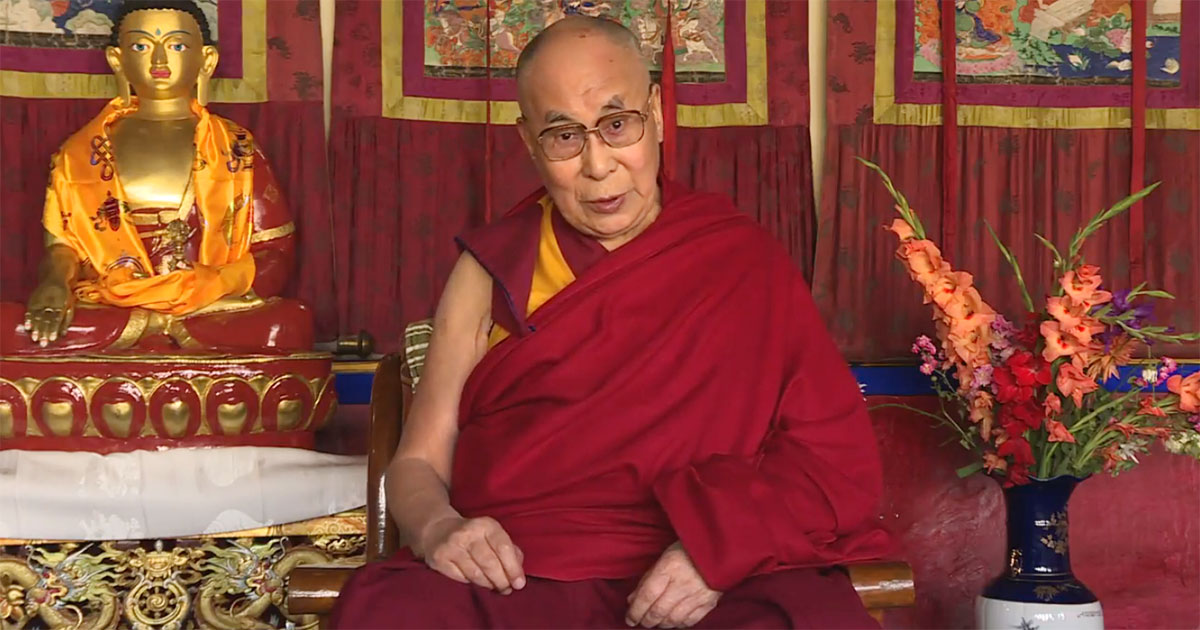Describing the Ministerial to Advance Religious Freedom as “just the beginning,” Vice President Pence and other US government officials repeatedly raised China’s human rights violations in Tibet as they promised ongoing new efforts to combat religious freedom violations around the world. Ambassador-at-Large for International Religious Freedom Sam Brownback, who recently re-affirmed America’s commitment to seeing the release of the Panchen Lama, answered a question about religious freedom in Tibet by describing a new multi-lateral effort to end China’s assault on Tibetan Buddhism:
We had a number of Tibetan Buddhists testify and speak here, and people that have experienced the persecution that’s taken place for years in Tibet… What we are working on doing and pulling together is an international consortium to press China about religious freedom… It’s Tibetan Buddhists, it’s Uighur Muslims, Christian house church leaders, Falun Gong – there’s a whole series, and this has been going on for some period of time. We’re trying to do is get that international coalition pulling together to push on the Chinese Government to let people practice their faith freely as they see fit.

The Dalai Lama addresses the Ministerial to Advance Religious Freedom in a special video message.
Pence spoke about Tibet in his remarks during the final day of the Ministerial and acknowledged the presence of Golok Jigme, a Tibetan Buddhist monk and activist who was imprisoned and tortured by China:
Farther from home, but close to our hearts, religious persecution is growing in both scope and scale in the world’s most populous country, the People’s Republic of China. The State Department’s annual International Religious Freedom report has labeled China as a religious freedom violator every year since 1999. Together with other religious minorities, Buddhists, Muslims, and Christians are often under attack.
With us today is Kusho Golog Jigme, a Tibetan Buddhist monk. For nearly 70 years, the Tibetan people have been brutally repressed by the Chinese government. Kusho was jailed and tortured after he spoke out against the Chinese rule in his homeland. While he escaped China, his people’s fight to practice their religion and protect their culture goes on. I say to Kusho, we are honored by your presence and we admire your courage and your stand for liberty.
Pence also met with Golok Jigme later in the day, with Golok Jigme taking the opportunity to urge Pence to help the Dalai Lama to resolve the Tibetan issue with the Chinese government. In a statement released at the end of the Ministerial, the State Department expressed deep concern about violations of religious freedom in the People’s Republic of China:
Many members of religious minority groups in China – including Uighurs, Hui, and Kazakh Muslims; Tibetan Buddhists; Catholics; Protestants; and Falun Gong – face severe repression and discrimination because of their beliefs. These communities consistently report incidents in which the authorities allegedly torture, physically abuse, arbitrarily arrest, detain, sentence to prison, or harass adherents of both registered and unregistered religious groups for activities related to their religious beliefs and peaceful practices. Authorities also restrict travel and interfere with the selection, education, and veneration of religious leaders for many religious groups. We are concerned by the government’s longstanding efforts to suppress Uighur Muslim and Tibetan Buddhists’ religious, linguistic, and cultural identities.
[…]
We strongly urge the Chinese government to protect the religious freedom of all individuals and to respect the human rights of all members of religious groups in accordance to China’s international commitments to respect freedom of religion. Such developments will only further peace, security, and stability in China and among its neighbors.
Similarly, when asked by Voice of America to respond to assertions by the Chinese government that some Tibetan Buddhist and Uyghur Muslim groups are separatist in nature, and not religious, Secretary Pompeo said: “We think [the Chinese government is] on the wrong side of religious freedom, that they’re a country of concern connected to that.”
The Dalai Lama recorded a special video message for the Ministerial, stressing the important of inter-faith harmony:
Speaking about the Dalai Lama after the video message, Ambassador Brownback told a Radio Free Asia reporter:
A number of us have met with him over the years many times, and he’s probably the best spokesman, one of the best spokesmen in the world for religious freedom. And he spoke via video at this, but we’re going to continue to press that issue and press it with the Chinese Government and build an alliance, build a series of allies like out of the group that’s here today, to press the Chinese for this basic human right for Tibetans and for the rest of the people of China.

